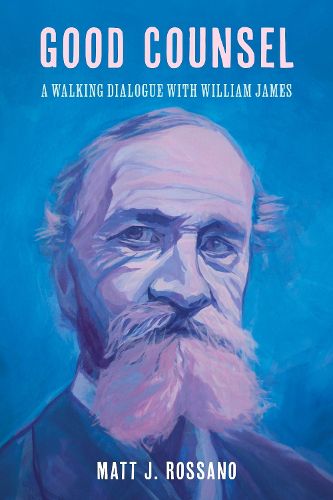Readings Newsletter
Become a Readings Member to make your shopping experience even easier.
Sign in or sign up for free!
You’re not far away from qualifying for FREE standard shipping within Australia
You’ve qualified for FREE standard shipping within Australia
The cart is loading…






William James is America's most important psychologist and (arguably) intellectual. While a thriving literature on Jamesian thought exists, the typical undergraduate learns little more than his name. This book fills the gap between the passing paragraph or two about James in undergraduate textbooks and the dense academic literature of Jamesian scholars. By offering an interesting and inspiring introduction to James, the book aims to bring a new generation of minds into the Jamesian conversation.
Written as a dialogue between William James and some of his famous students such as Theodore Roosevelt, Gertrude Stein, and W. E. B. Du Bois, Good Counsel: A Walking Dialogue with William James provides an introduction to the important elements of Jamesian thought and seeks to inspire students to explore that thought further on their own. While not a formal critique of James, this book does not shy away from highlighting potential weakness or challenges to his thought.
By the book's end, students should have a solid grasp of basic Jamesian concepts, including what he meant by: Radical empiricism, pluralism (or a pluralistic universe), experience (especially the stream of thought), attention, freedom, truth, reality, God, rational belief, moral claims, moral solitude, consciousness, sentiment (how it drives reason), mysticism (or the mystical experience), and pragmatism (or the pragmatic approach). Furthermore, they should understand the interconnections among these concepts and the objections or alternatives to them (e.g., monism, determinism, reductionism, idealism, rationalism, etc.).
$9.00 standard shipping within Australia
FREE standard shipping within Australia for orders over $100.00
Express & International shipping calculated at checkout
William James is America's most important psychologist and (arguably) intellectual. While a thriving literature on Jamesian thought exists, the typical undergraduate learns little more than his name. This book fills the gap between the passing paragraph or two about James in undergraduate textbooks and the dense academic literature of Jamesian scholars. By offering an interesting and inspiring introduction to James, the book aims to bring a new generation of minds into the Jamesian conversation.
Written as a dialogue between William James and some of his famous students such as Theodore Roosevelt, Gertrude Stein, and W. E. B. Du Bois, Good Counsel: A Walking Dialogue with William James provides an introduction to the important elements of Jamesian thought and seeks to inspire students to explore that thought further on their own. While not a formal critique of James, this book does not shy away from highlighting potential weakness or challenges to his thought.
By the book's end, students should have a solid grasp of basic Jamesian concepts, including what he meant by: Radical empiricism, pluralism (or a pluralistic universe), experience (especially the stream of thought), attention, freedom, truth, reality, God, rational belief, moral claims, moral solitude, consciousness, sentiment (how it drives reason), mysticism (or the mystical experience), and pragmatism (or the pragmatic approach). Furthermore, they should understand the interconnections among these concepts and the objections or alternatives to them (e.g., monism, determinism, reductionism, idealism, rationalism, etc.).